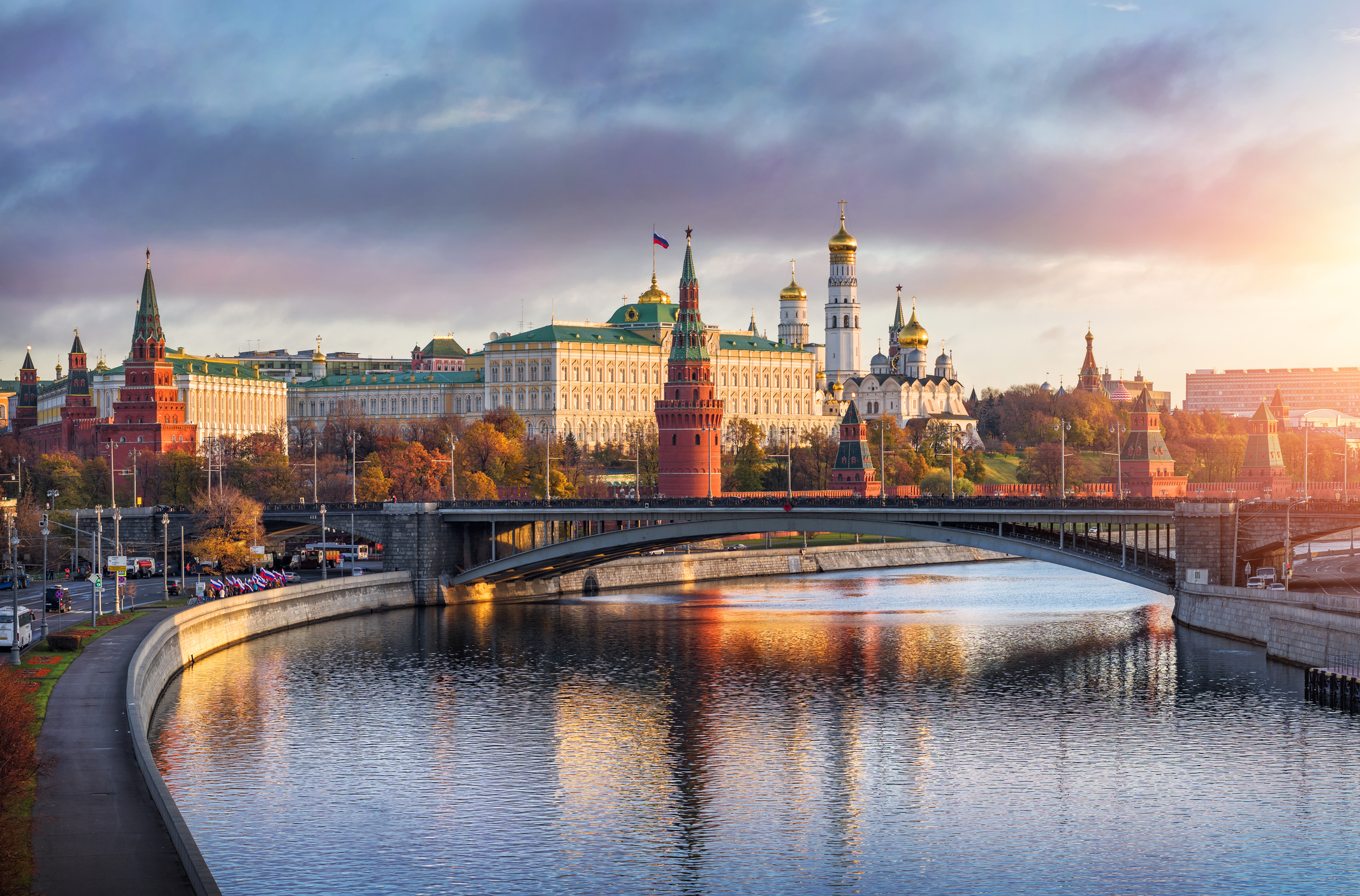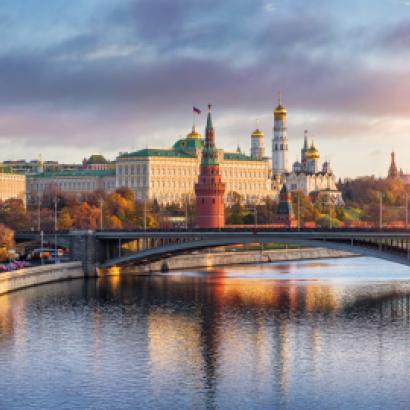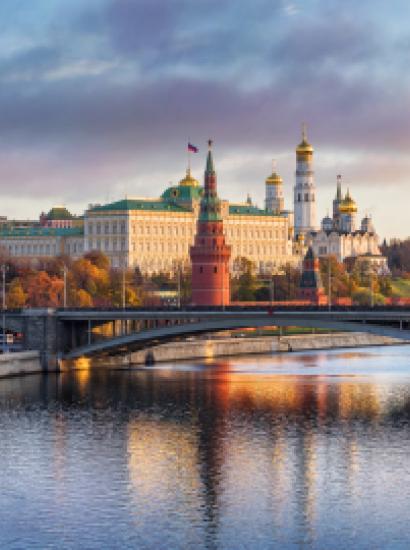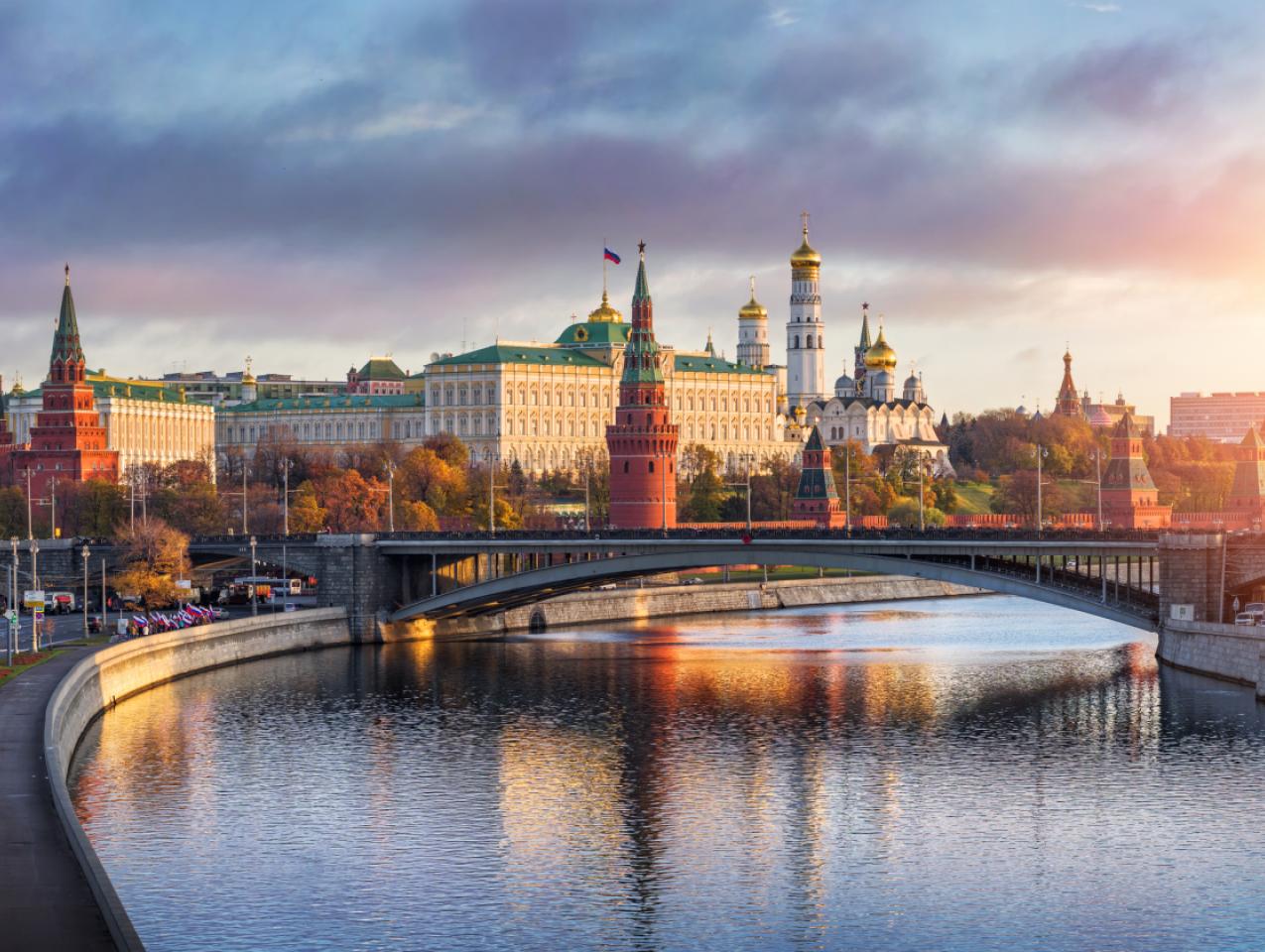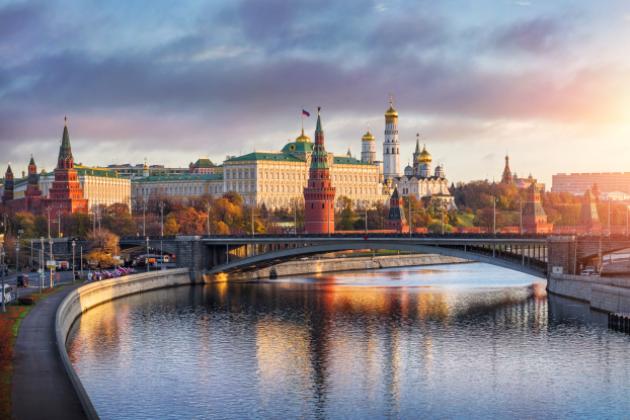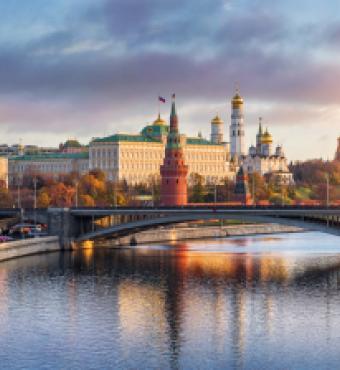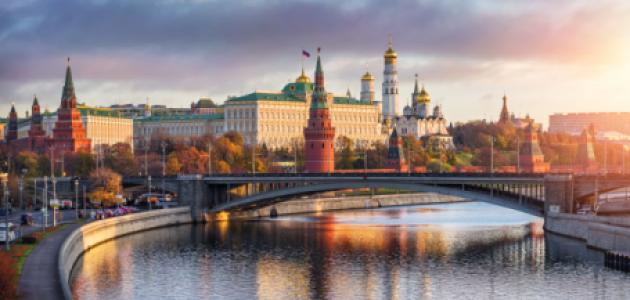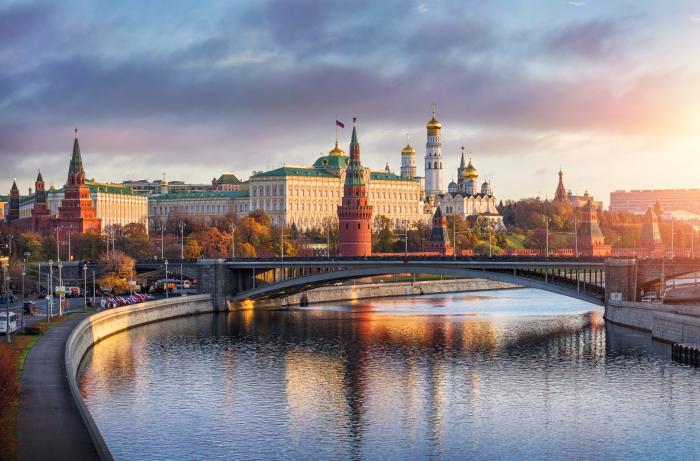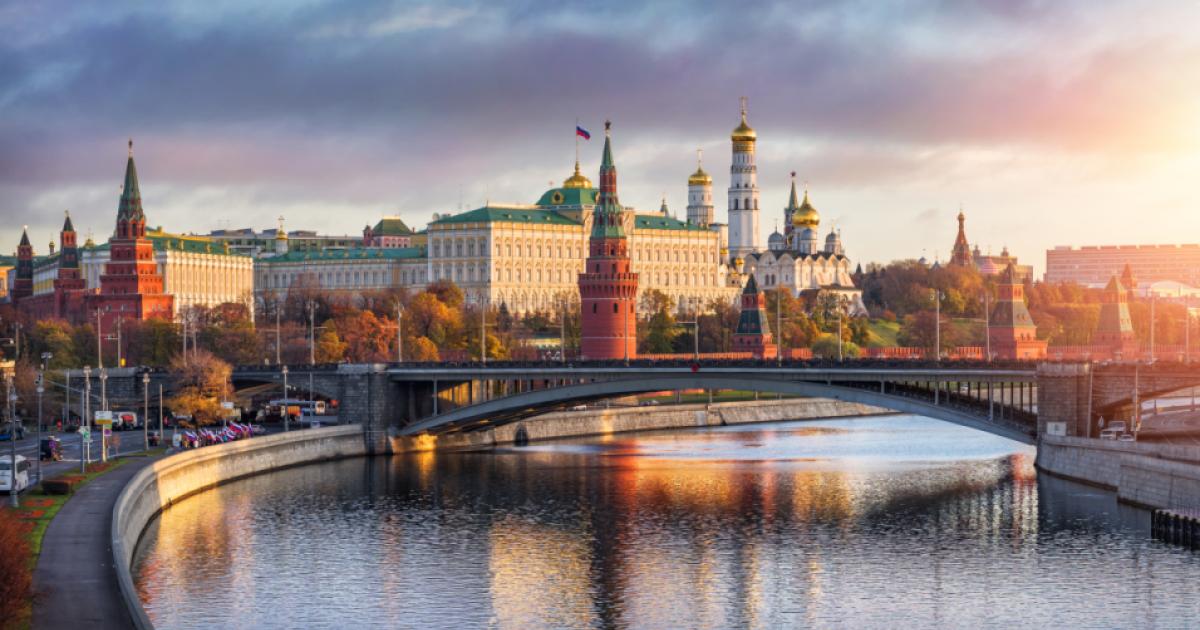- Energy & Environment
The world is going through a very complicated and dangerous period in its development. One does not need to be an expert on global politics or have access to exclusive sources of information to arrive at this obvious conclusion – all you have to do is flick through the latest issue of a newspaper or watch the news on TV.
The picture might be clearer and more understandable if humanity faced a historic challenge that would directly affect our common destiny. However, the reality of the matter is that, as we approach the end of the second decade of the 21st century, we are all being forced to address a variety of threats: from international terrorism to global warming; from an imbalanced world financial system to another round of the nuclear arms race, etc.
The situation is additionally complicated by the fact different countries have different priorities when it comes to threats and challenges. Some view managing migration as the key issue, while others focus primarily on challenges to economic development. Environmental problems and political radicalism affect countries differently; and the involvement of the latter in global economic and financial processes varies as well. Hence, it is so difficult to talk about a common agenda for the humanity, let alone to agree on a common action plan, even for the near future.
This discussion should be started by addressing the current situation in the world and the reasons behind it. Now, let me share a few considerations on the subject even though I make no claims to absolute truth.
- The World We Live In
After the end of the Cold War, international relations entered a transitional period which continues up to this day. The first hints at the coming of a new era in global politics emerged back in the late 1980s and early 1990s: the bipolar world was on its way out; the global socialist system was collapsing; and the processes of globalization and a new information revolution started their triumphant march around the planet. For several objective and subjective reasons, the old system of international relations largely withstood the pressure of change and underwent only minor changes.
Hardly anybody was preparing for the emerging situation; in fact, few realized the sheer scale of the coming change. This is why tactics overshadowed strategy for many brilliant and sophisticated politicians, and the opportunity to secure short-term victories with little effort proved an irresistible temptation. As a result, the United States found itself involved in the building a unipolar world, which came at price both for the US and for its numerous targets. On the contrary, Europe became fixated on resolving its internal problems, thus losing a considerable share of its clout in global politics. China was setting itself long-term goals and biding its time: the country was in no hurry to share the responsibility for maintaining global stability. Russia was too busy struggling to survive to care all that much about overhauling the system of international relations.
Nevertheless, all these multi-vectored and sometimes incompatible aspirations of the great powers were gradually eroding the foundations of the world order that had emerged after World War II. In this new reality, the world order that had prevailed until that point could no longer stand up to the emerging regional crises and to the new security threats and challenges, including those posed by non-state actors. Year after year, one step at a time, the fundamental principles of international law were undermined and international organizations, including the United Nations, were losing their status. The volatility and unpredictability of the global economy increased dramatically: the prices of the key raw materials skyrocketed; the financial markets and global exchange rates became plagued by wild instability; and entire financial and industrial empires were rendered bankrupt.
It is not that these politicians and state officials failed to notice the alarming symptoms of the impending collapse of the world order: by the turn of the century, those symptoms had grown too obvious to be overlooked. However, attempts to regain control over global politics proved inconsistent, selective and poorly coordinated.
Proposals were put forward to reform the United Nations and the Organization for Security and Co-Operation in Europe (OSCE). Efforts were made to somehow strengthen the G8. The G20 was set up, followed by BRICS and the Shanghai Cooperation Organisation (SCO). The International Monetary Fund (IMF) and the World Bank launched slow reforms. Negotiations began on the trans-Atlantic and trans-Pacific integration projects... However, none of these initiatives could reverse the overall trend towards greater instability and chaos in global politics and economy.
What did not change were the increasingly obsolescent “pillars” of the world order inherited from the second half of the 20th century: the main international organizations and institutions (from the United Nations and the World Bank to NATO and the OSCE); the fundamental principles of public international law; and the traditional approaches of the great powers to resolving foreign policy issues, which provoked a sharp increase in tensions between the West and Russia. Year in and year out, the costs of preserving the obviously outdated mechanisms of global governance continued to grow, but the parties preferred to put up with this. We may say that, for the key players in the global political arena, the risks associated with maintaining the status quo were smaller than those associated with any possible change.
Now that the second decade of the 21st century is ending, it will no longer be possible to freeze the current system of international relations for another 20 or 30 years. We have reached the bifurcation point and must now elevate the international system to a new qualitative level that would change the essence and meaning of the very political structure of international relations.
The question is: what shape will this transition take? It may prove to be evolutionary, implemented through a series of consistent and interrelated reforms supported by a broad international consensus. Or it may be revolutionary, dismantling most existing international institutions in the process and resulting in the construction of a new world order on the ruins of the current one. It is hardly worth mentioning which of the two options would be preferable for us all.
One thing is obvious: the longer we linger at the bifurcation point trying to postpone the transition to a new world order, the more dearly this transition will eventually cost us all. We are running out of time for a proper transformation.
- New Security Threats
As we mentioned above, these days every country has to deal with a range of security threats and challenges. Some of these threats were inherited from the past, while others have emerged in front of our very eyes; some challenges already affect our daily lives directly, while others are only looming on the horizon. An important place among these diverse challenges is occupied by numerous economic, social and political problems which are related, one way or another, to the development of new technologies, the rapidly changing global demography, and the cumulative pressure that humanity is heaping on the environment.
The international community may have devised certain mechanisms to help it resolve political, military and economic problems, but it has proved unprepared for the new risks. As Sir Winston Churchill aptly put it, “Generals always fight the last war.” Similarly, politicians tend to focus on conventional threats, those which they feel and understand better than new challenges.
Lest I should come across as an inveterate pessimist, I do concede that the changes taking place in the world create new opportunities as well as risks. For example, new technologies are rather a common asset than a common curse. Our average life expectancy is much longer than that of the previous generations, and we have greater opportunities for self-realization. Today, we have broader social contacts than our ancestors did. We enjoy access to various sources of information. We travel more often and generally live fuller, more vibrant and interesting lives. Our contemporaries stand a lower chance of dying in an armed conflict or revolution, starving to death or succumbing to a deadly mass epidemic. It is unlikely that any of us would want to find ourselves living back in the early 20th century, not to mention the Middle Ages.
Still, there is no denying the obvious fact that the new technology poses many fundamental questions for humanity that have yet to be answered. Nothing in this life comes for free – everything has a price, including the rapid technological progress of the past few decades. Improving living standards and increased leisure time result in the greater incidence of mental disorders, while the frequent downside of social and geographical mobility is the erosion of traditional values and social institutions, including the fundamental institution of the traditional family.
The accelerating processes of automation and robotization may aggravate the problem of unemployment, making hundreds of millions of people redundant in the economy of tomorrow. On the other hand, educational requirements will grow significantly in this environment, and it is becoming increasingly difficult for traditional universities to adequately prepare potential graduates for the new economy. At the same time, we are observing a dramatic increase in inequality around the world: both in developed and developing countries. New technologies are one of the factors that allow enormous wealth and colossal resources to make arbitrary decisions that affect the fate of millions in the hands of a few “chosen ones.”
In politics, the information and communication revolution is changing the mechanisms of political mobilization, rendering traditional party systems – and political parties as such – obsolete. New technologies have the potential to help us secure a breakthrough in the development of political democracy, but, in reality, they are more often abused by irresponsible right- and left-wing populists. Unfortunately, the first ones to avail of the new opportunities provided by this revolution are usually political extremists; serious political discussions take a back seat to smear campaigns designed to discredit the opponent by any possible means, and expert opinions are pushed to the side-lines of political discourse. We are observing the establishment of fundamentally new mechanisms and algorithms for manipulating public opinion, the successful imposition of oversimplified ideas and stereotypes on society, the constant and frequently effective attempts to erase the lines between truth and lies, between information and propaganda.
The impact of new technologies on the system of international relations is extremely controversial. On the one hand, technological progress is conducive to the expansion of cooperation between countries, peoples, regions, private sector and civil society institutions. Entirely new opportunities emerge for what sociologists refer to as “upward social mobility,” both for individuals and for entire countries. People know each another better than they did just a few decades ago, and we have every right to call ourselves unified humankind.
On the other hand, new technologies contribute to reducing the stability and predictability of world politics, both at the global and regional levels. Unfortunately, new technological solutions often end up in the hands of the most irresponsible and unprincipled political and economic actors, from stock-exchange gamblers and financial swindlers to international terrorists and leaders of transnational mafia groups. Responsible players are playing catch-up in this race, their reactions are delayed and often inadequate (in part because their priorities are still largely determined by the conventional agenda inherited from the previous century).
New technologies pose particularly significant challenges to international security. Suffice it to mention the threats emanating from cyberspace, which are often compared to those posed by nuclear weapons. It is no coincidence that Washington is seriously considering the possibility of a nuclear strike in response to a cyberattack. At the same time, cyberthreats are also considerably different from nuclear threats. Nuclear weapons have always been, and remain, under the control of a handful of “select” countries, whose number is growing very slowly and under sharp criticism from the international community. Cyberweapons are very “democratic” in that they can be created and used by any government and even by non-state actors. Moreover, due to the specifics of this new type of weapon, non-state actors like transnational corporations, international organizations, public associations and network structures often have far more powerful resources at their disposal than governments.
What is more, the purpose for the creation and deployment of nuclear weapons was not their actual use, but rather to deter potential adversaries. The fear of global nuclear warfare ensured that the nuclear powers acted with extreme caution and the utmost responsibility. It is different with cyberweapons: few believe today that their application could cause an immediate threat to humanity. Therefore, the temptation to use such weapons may prove too great. What is more, should a nuclear weapon be used, no one would have any doubts as to who exactly had started the nuclear war. Cyberweapons are largely anonymous; a cyberattack can be mounted from virtually anywhere on the planet, and the perpetrator may go unidentified and thus unpunished.
If no measures are taken, cyberspace will increasingly resemble a huge and constantly growing stream of “muddy waters” in which everyone, including terrorists, can angle for their “fish” without fear of prosecution for their actions. Cyberthreats do not affect national security alone: they are real both for private sector and for everyone who uses modern digital technologies. The global damage from cybercrime in 2016 exceeded $400 billion, and the figure continues to grow rapidly. The cumulative effect of this complex danger has increased sharply and has taken on a new quality, necessitating an urgent collective assessment of the situation on the part of the international community.
Another feature of the current situation is the fact that humanity is faced with numerous new security issues in addition to the many unresolved old, “traditional” problems – the political confrontation between the East and the West, the renewed arms race, the escalating nuclear proliferation situation, continuing territorial disputes, etc. The new agenda requires urgent action, but the old one is not going to just disappear either. This further complicates the situation in the world, impeding unity and intensifying global uncertainty.
As the numerous unresolved problems of the past century worsen, many countries, including Russia, increasingly perceive new technologies through the prism of the new threats and challenges they generate rather than the new opportunities they create. Anti-globalization sentiments and the feeling of nostalgia for the understandable and predictable world of the past are growing more pronounced everywhere.
One can often hear that countries can protect themselves from the negative consequences of unpredictable fluctuations in the global economy and politics by limiting their involvement in global processes. Isolationism is peddled as patriotism, and ineptitude in matters of global politics and economy is presented as little short of a principled position. However, isolationism has no future in the modern world. Any country that chooses to embrace it is bound to lose the opportunity to influence globalization processes, but will still experience their negative consequences.
Similarly, it is difficult to agree with the view that anyone stands to benefit from the reduced controllability of the international system, an increase in contradictions between different centres of power, or the emergence of regional conflicts. Further erosion of the world order, growing chaos and uncertainty in global politics would be strategically disastrous for everyone, including Russia.
It is clear that the pace of technological change will only increase with time. The number of global political actors will continue to grow, as will the impact of political processes on each and every one of us. It is safe to predict that the ongoing demographic processes will stimulate competition for resources. The massively growing migration flows will become a permanent factor of social and cultural tensions around the world. New technological opportunities will create additional incentives for political extremism, religious fundamentalism and international terrorism.
Together, in the next two to three decades these and other alarming trends could destroy the current system of international relations, its regulatory and legislative framework, regional and global organizations, international regimes and universal notions of what is just and unjust, legitimate and illegitimate, acceptable and unacceptable when it comes to global politics.
In such a scenario, it would no longer be about further development, but rather about the sheer physical survival of humanity in the totally new environment. The clash of two opposite trends – rapid technological changes and the equally rapid increase in instability and chaos in global politics – could prove fatal for everyone by the middle of this century.
- What Can We Do?
The international community is facing the truly historic mission of regaining control over the modern world on a fundamentally new technological basis and building a new world order by the end of the century. This grandiose task is comparable with the programme to overhaul the world that was developed in the middle of the 20th century by the countries that had emerged victorious from World War II.
To give the founding fathers of the post-war world order justice, their design lasted for seven decades: it withstood such tests as the Cold War, the fall of European colonial empires and the disintegration of the Soviet Union. However, the victors in World War II were primarily pursuing their own goals. The world order of the 21st century will only be legitimate (and therefore effective) if the entire international community – including governments rich and poor, the private sector, international organizations, experts and civil society institutions – is involved in creating and maintaining.
It is clear that the ongoing transformation of global politics will be a complex, painful and, in many ways, dangerous process. This is true of any fundamental transformation. Only those countries and societies that manage to deal with the coming change in the most appropriate manner, anticipate the short- and long-term consequences, and make a realistic assessment of their role in the future world will be able to mitigate the risks, avoid obvious threats and seamlessly integrate into the new world order.
Over the past decades, we have witnessed, and to some extent been involved in, several attempts to rearrange the world order, including those with due account of the changing technological basis. Some 30 years ago, the USSR proclaimed the ideas of “universal human values,” “balance of interests,” “reasonable sufficiency,” “common European home,” etc. Those ideas seem romantic and naïve today; the world proved unprepared for such a radical revision of the principles of international relations, and so lost its chance to enter the 21st century with an overhauled world order.
After the desintegration of the Soviet Union, the United States and its allies attempted to restore control over the international system based on the principles of a “unipolar world.” I do acknowledge the good intentions of the authors of this strategy: they sincerely believed in the benefits of the America’s “enlightened” hegemony not only for the interests of the United States itself, but also for the good of other international actors.
However, today we all know that not only did the attempts to build a “unipolar world” fail, they also triggered a number of additional problems that the international community is trying to cope with to this day. Incidentally, the idea of unipolarity is being actively thwarted by modern technologies, which consistently undermine rigid hierarchies in global politics and economy.
The concept of a “multipolar world” as a more stable, reliable, and fair structure than a “unipolar world” started gaining popularity in the early 21st century. However, in the modern situation of universal interdependence, global production chains, world-scale finance, transcontinental migrations, and the globalization of education, science and technology, one can hardly believe in the possibility of this kind of “multipolarity.”. Relations between countries and peoples are increasingly determined by countless specific accords, private agreements, common technical standards and harmonized regulatory practices, rather than by fateful strategic partnerships.
We have been talking multipolarity for two decades now, but still cannot implement the concept. The potential participants in the 21st century’s “global concert” are too disparate, their mutual relations are too asymmetrical, the foundations of the traditional hierarchy in global politics are too much undermined, and the role of non-state actors has become too great.
The “new bipolarity” concept, which implies building a new world order around U.S.–China relations, appears to be even less promising. The old Soviet–American bipolar world can be replicated neither now nor in the future, for the simple reason that the current international system does not include the notion of “confrontation between two socioeconomic systems” divided by irreconcilable ideological contradictions. Besides, most of the problems of the 21st century are to be found within individual states, rather than between them. Instability is usually generated by non-state actors in opposition to the existing international rules and norms.
History teaches us that humanity’s transition from one world order to another is always accompanied by the accumulation of new production technologies; as a rule, such transitions are spurred by wars and revolutions. The critical mass of new technologies for the next civilizational breakthrough has already been accumulated. But a new cycle of wars and revolutions may prove fatal – not only for individual countries, but also for humanity as a whole. It is, therefore, extremely important to break the wheel of world history, to advance to a new level of global civilizational development without waiting for another world-scale cataclysm.
It will be yet more difficult to achieve now that the possibilities for imposing something from the outside on societies, governments, social or ethnic groups and even individuals are shrinking rapidly. The only path left open to us is that of persistent negotiations, difficult compromises, and possibly voluntary commitments and gradual evolution. In any case, the new world order will be unable to replace the current system of global politics: rather, the former will gradually sprout through the latter, not unlike blades of grass sprouting through asphalt. The chances of success appear to be higher if we can follow a few basic principles.
First, regaining control requires a joint effort from the entire international community. The past three decades have demonstrated that attempts to build a new world order with the sole effort and in the sole interest of an “elite club,” be it NATO, the G7 or a “coalition of like-minded individuals,” are doomed. The relevant discussion should be launched within the United Nations, the only universal and unconditionally legitimate global organization. In fact, the United Nations would itself benefit from this, receiving a new lease of life through elaborated reforms.
Second, the new world order should be based on unconditional respect for the sovereignty of all countries large and small, rich and poor, in the West and in the East. Any “double standards” here are the rust that will inevitably corrode the structure of the new world order, no matter how strong that structure may appear. There is much to be said against nation states as the main subjects of global politics, but these are the only “bricks” we have to construct the new world order.
Third, it is necessary to reinstate the universal recognition and unambiguous interpretation of the fundamental notions of international law, which are indispensable to a uniform system of global politics. The process of taking stock of, re-evaluating and modifying existing norms will certainly prove difficult, painstaking and slow. The sooner we start this process, the better for all concerned.
Fourth, security issues today go hand in hand with problems of development, both at the regional and global levels. The most vivid example of this synergy is the current migration crisis, which is rooted not only in international terrorism and civil wars, but also in the numerous burning social and economic problems experienced by many Middle Eastern and African countries. The new world order should encompass a set of international regimes that could be used for the effective global and regional management of raw materials, energy, water, food, information and human resources. Just as security in the 21st century cannot be unilateral or exclusive, economic development and social harmony cannot be confined to individual countries or regions.
Fifth, there is an urgent need to develop mechanisms for the effective interaction between governments, the private sector and civil society in addressing the common challenges facing humanity. The fundamental interests of individuals, governments, business and the international community are inseparable, and we must stand up for them together. With them being very important, nation states will hardly be able to tackle the new challenges to security and development single-handedly.
Sixth, we need to reach a qualitatively new level of expert analysis as applied to the creation of a new world order. Unfortunately, many leading analytical centres whose mission it is to help politicians “look beyond” current events have found themselves hostage to the negative political situation. Their work often demonstrates a high degree of political or ideological bias and indicates an inability or unwillingness to engage in advanced strategic analysis. This situation needs to be addressed, as the role of experts and analysts is currently more important than ever before.
Seventh, we must realize that the objective of regaining control over the contemporary world is extremely urgent. The world is approaching a “point of no return,” where reversing the destabilization processes will be extremely difficult, if possible at all. As crisis situations continue to accumulate, the global security and development environment continues to disintegrate, decision makers refrain (consciously or unconsciously) from long-overdue but painful measures, and actors pursue immediate interests and goals, the consequences may be truly tragic. Moreover, the scale of these consequences would overshadow many of the current disagreements and contradictions, making them seem small and unimportant.
Igor Ivanov is president of the Russian International Affairs Council, professor at the Moscow State Institute of International Relations, and from 1998 to 2004 was minister of foreign affairs of the Russian Federation.







